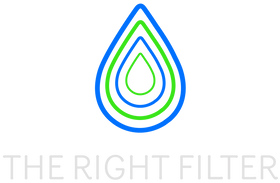The Arctic, often imagined as a pristine wilderness, is facing the threat of PFAS chemicals. A global study led by researchers from Sharjah University, the University of Rhode Island, and others found these “forever chemicals” in polar bears, seabirds, and Indigenous communities relying on traditional diets. PFAS, used in everything from non-stick pans to firefighting foam, don’t break down. Instead, they accumulate, disrupting reproduction, weakening immune systems, and raising cancer risks.
“The similarities in health effects across species…are deeply concerning,” says Rainer Lohmann, a lead author and oceanography professor. Arctic communities eating marine mammals face PFAS levels rivaling industrialized areas, turning them into unwitting sentinels of global contamination. Pal Weihe, a co-author, puts it starkly: “The Arctic acts like a mirror. What we find here reflects the planet’s PFAS crisis.”
But science is fighting back. At the University of Leicester, researchers cracked a major recycling hurdle: separating PFAS-laden membranes from precious metals in fuel cells. Their solution? Soundwaves. Using high-power ultrasound, they split materials in under a minute without harsh chemicals. “This revolutionizes recycling,” says Dr. Jake Yang. “It brings us closer to a circular economy for clean energy tech.”
Meanwhile, AI is tackling ocean plastic. A University of Amsterdam team developed an algorithm that optimizes cleanup ships’ routes in real time, boosting efficiency for The Ocean Cleanup’s Pacific efforts. “Every sweep now collects more plastic,” says researcher Dick den Hertog. The tech isn’t just theoretical. It’s already deployed, proving analytics can turn the tide on pollution.
And what about plastics themselves? Enter sulfur. Researchers at the University of Bayreuth found a way to turn petroleum waste into dynamic bonds for polyesters. These bonds let plastics be reshaped or repaired without losing quality, sidestepping the recycling degradation trap. “It’s a game-changer,” says lead chemist Alex Plajer. “Sulfur’s abundance and flexibility could make plastics endlessly recyclable.”
The takeaway? PFAS and plastics are global crises, but science is countering with ingenuity. From soundwaves purging toxins to AI-guided cleanups and self-healing materials, solutions are emerging. As Lohmann warns, “The Arctic’s plight is a wake-up call.” Yet with every breakthrough, we’re reminded: innovation, paired with urgency, might just rewrite this story.
https://www.sciencedirect.com/science/article/pii/S0048969724064301?via%3Dihub
https://pubs.rsc.org/en/content/articlelanding/2025/su/d4su00795f
https://www.sciencedirect.com/science/article/pii/S1350417725001099?via%3Dihub
https://pubsonline.informs.org/doi/10.1287/opre.2023.0515
https://onlinelibrary.wiley.com/doi/abs/10.1002/anie.202501337
